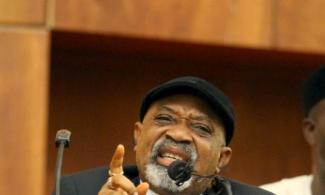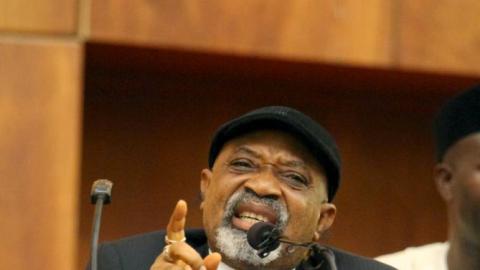
But another announcement by the Minister of Labour and Employment, Dr Chris Ngige that negotiation was inconclusive and that no agreement had been reached over a definite figure even after the tripartite negotiation committee rounded off its deliberations, has thrown up fresh agitation in the labour circle.

When the organised labour suspended its strike action over declaration of negotiation of minimum wage on Sunday, 30th September 2018, it was believed that a new minimum wage would soon be announced.
But another announcement by the Minister of Labour and Employment, Dr Chris Ngige that negotiation was inconclusive and that no agreement had been reached over a definite figure even after the tripartite negotiation committee rounded off its deliberations, has thrown up fresh agitation in the labour circle.
The Guardian gathered that at the October 4th and 5th meeting, both the organised private sector and organised labour agreed on N30, 000 while the Federal Government team led by Ngige pressed for N25, 000.
The conclusion was that since the organised labour and organised private sector are in agreement and in the spirit of tripartism, two against one was a done deal.
The meeting then adjourned to await the date for presentation to the Federal Government.
With these achieved, labour said it was at a loss at what transpired within government circle within one week.
Indeed, Ngige made unveiled his new position after the first the FEC meeting that preceded the conclusion of the committee’s negotiation.
Were new facts presented to Ngige at the FEC meeting that influenced a change of stand? Labour said they think so.
Indeed, according to the Convention 131 of International Labour Organisation (ILO), which has always been erroneously cited by Dr Ngige on the ability to pay, nothing can be further from the truth.
The convention, which ILO adopted in 1970 titled ‘Minimum wage fixing convention, 1971 (No 131)’ remains the most adopted convention by the ILO member states, encourages members to establish a machinery to fix and adjust minimum wages from time to time; wages that are based on the principle of full consultation with social partners (tripartism); involves social partners, on an equal footing, as well as independent experts in the design and operation of the system; sets the minimum levels that take into account the needs of workers and their families, as well as economic factors and include appropriate measures to ensure the effective application of minimum wage.
It is therefore a pure mischief by the Minister to declare that the ILO convention 131 speaks to ability to pay by employers.
The centrepiece of the convention is that the tripartite bodies must reach a common figure, which labour said was achieved before the committee was legitimately adjourned.
The agreement on N30, 000 by both labour and the organised private sector indeed signalled that majority (labour and employer body) had their way while minority (government) had its say.
Labour also said the Minister did not oppose the N30, 000 figure at the meeting and that the committee on figure that made the submission was chaired by Ngige himself.
The argument of labour is that N30, 000 monthly (which is less than 100 dollars) is grossly inadequate to take care of a man, his wife and four children as stated in one of the strands of the ILO convention 131, which states that a minimum wage must take into account the needs of workers and their families.
The present scenario seems to lend credence to insinuations within labour movement that the present government is not committed to implementing a new minimum wage.
Speaking at the end of the weekly Federal Executive Council (FEC) meeting in Abuja, Ngige said the Federal Government proposed N24, 000 as the new minimum wage for civil servants.
Ngige claimed that when the committee reconvened on October 5th, after the NLC had suspended its nationwide strike, “the organised labour came down to N30, 000 the organised private sector came down to N25, 000 while the state governments proposed N20, 000.”
He said the Federal Government is still ‘consulting’ and that the negotiation is on going.
He said in accordance with Convention 131 of the ILO, the most important thing to consider in fixing the new minimum wage is the ability to pay.
In his reaction to the development, President of Nigeria Labour Congress (NLC), Ayuba Wabba said the entire labour movement was dumbfounded by the latest argument of the Minister.
He added that the organised labour would not hesitate to declare yet another strike action that would be debilitating to the nation’s economy should the Federal Government delays the promulgation of a new minimum wage within the shortest period of time.